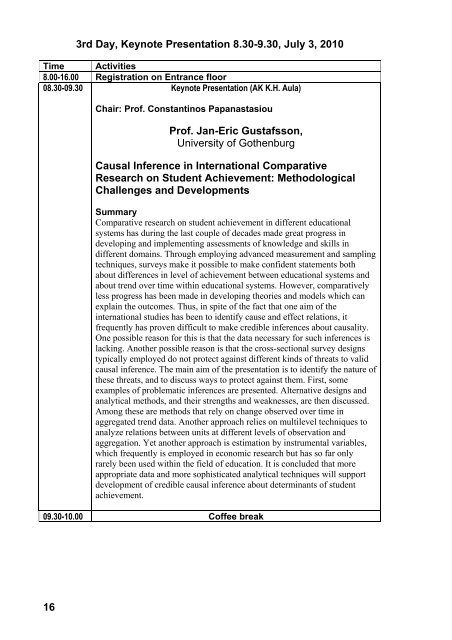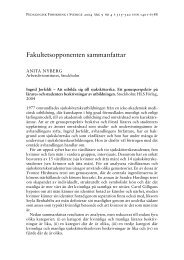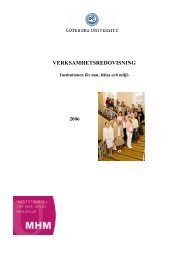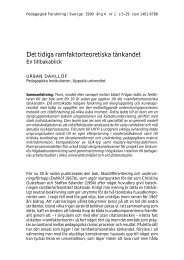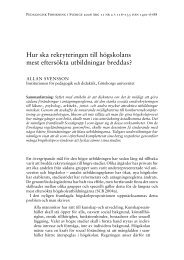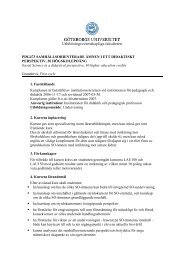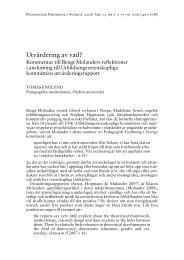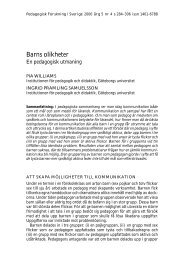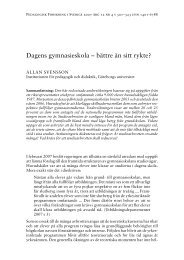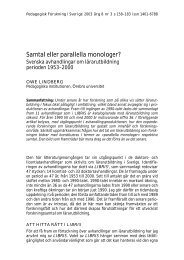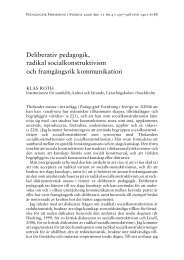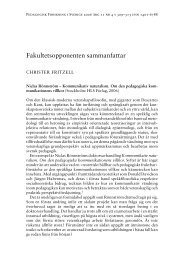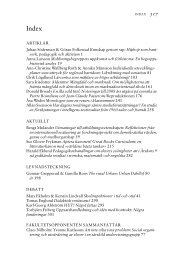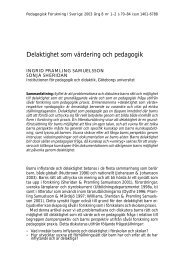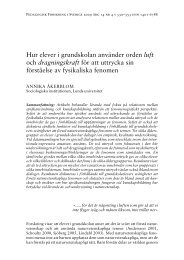University of Oslo Workshops June 29-30 Conference July 1-3 ...
University of Oslo Workshops June 29-30 Conference July 1-3 ...
University of Oslo Workshops June 29-30 Conference July 1-3 ...
You also want an ePaper? Increase the reach of your titles
YUMPU automatically turns print PDFs into web optimized ePapers that Google loves.
3rd Day, Keynote Presentation 8.<strong>30</strong>-9.<strong>30</strong>, <strong>July</strong> 3, 2010<br />
Time Activities<br />
8.00-16.00 Registration on Entrance floor<br />
08.<strong>30</strong>-09.<strong>30</strong> Keynote Presentation (AK K.H. Aula)<br />
Chair: Pr<strong>of</strong>. Constantinos Papanastasiou<br />
Pr<strong>of</strong>. Jan-Eric Gustafsson,<br />
<strong>University</strong> <strong>of</strong> Gothenburg<br />
Causal Inference in International Comparative<br />
Research on Student Achievement: Methodological<br />
Challenges and Developments<br />
Summary<br />
Comparative research on student achievement in different educational<br />
systems has during the last couple <strong>of</strong> decades made great progress in<br />
developing and implementing assessments <strong>of</strong> knowledge and skills in<br />
different domains. Through employing advanced measurement and sampling<br />
techniques, surveys make it possible to make confident statements both<br />
about differences in level <strong>of</strong> achievement between educational systems and<br />
about trend over time within educational systems. However, comparatively<br />
less progress has been made in developing theories and models which can<br />
explain the outcomes. Thus, in spite <strong>of</strong> the fact that one aim <strong>of</strong> the<br />
international studies has been to identify cause and effect relations, it<br />
frequently has proven difficult to make credible inferences about causality.<br />
One possible reason for this is that the data necessary for such inferences is<br />
lacking. Another possible reason is that the cross-sectional survey designs<br />
typically employed do not protect against different kinds <strong>of</strong> threats to valid<br />
causal inference. The main aim <strong>of</strong> the presentation is to identify the nature <strong>of</strong><br />
these threats, and to discuss ways to protect against them. First, some<br />
examples <strong>of</strong> problematic inferences are presented. Alternative designs and<br />
analytical methods, and their strengths and weaknesses, are then discussed.<br />
Among these are methods that rely on change observed over time in<br />
aggregated trend data. Another approach relies on multilevel techniques to<br />
analyze relations between units at different levels <strong>of</strong> observation and<br />
aggregation. Yet another approach is estimation by instrumental variables,<br />
which frequently is employed in economic research but has so far only<br />
rarely been used within the field <strong>of</strong> education. It is concluded that more<br />
appropriate data and more sophisticated analytical techniques will support<br />
development <strong>of</strong> credible causal inference about determinants <strong>of</strong> student<br />
achievement.<br />
09.<strong>30</strong>-10.00 C<strong>of</strong>fee break<br />
16


